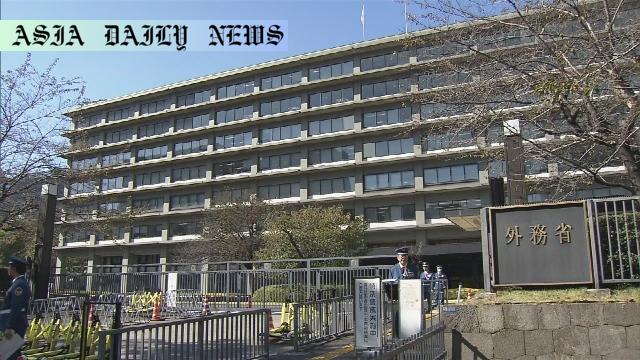Travel Advisory – Japan’s Foreign Ministry advises against travel to Thailand-Cambodia border due to ongoing clashes.
Travel Advisory is raised to Level 3 for Thailand-Cambodia border areas.
450 Japanese nationals in the affected region; no casualties reported.
Over 110,000 individuals evacuated amid ongoing military clashes.
More than 30 fatalities recorded on both sides of the border.

Japan Issues a High-Level Travel Advisory Amid Escalating Border Tensions
Japan’s Foreign Ministry has issued a stringent warning to its citizens concerning travel to the disputed border regions between Thailand and Cambodia. The escalating armed conflict in this area has prompted Japanese authorities to raise the travel advisory level to three, which signifies a strong recommendation to avoid all travel. This advisory targets zones within 50 kilometers of the border on Thai terrain and 30 kilometers on the Cambodian side.
The gravity of the situation cannot be understated, as the clashes have already resulted in the confirmed deaths of over 30 individuals from both sides. Additionally, the skirmish has forced the evacuation of more than 110,000 people to safer areas. Despite the high casualty and evacuation figures, recent reassurance comes in the form of no reported injuries or deaths among the approximately 450 Japanese citizens currently present in the region. Nonetheless, the risk of harm remains significant, with ministry officials urging travelers to reconsider their plans.
Understanding the Context of the Conflict
The intensity of the clashes stems from a long-standing territorial dispute between Thailand and Cambodia, particularly around the area near the Preah Vihear Temple. This ancient Hindu temple has been at the crux of diplomatic tensions for decades, with both nations asserting ownership over the land. The ongoing violence exemplifies the fragile and volatile nature of border politics in this region.
Observers note that local families residing in proximate border areas are among the most impacted. Entire communities have been uprooted, seeking refuge in temporary shelters. Efforts to mediate the situation have seen limited success, as sporadic violence continues unabated. Both the Thai and Cambodian governments have issued statements attributing fault to the other side, further complicating the path to a resolution.
Travel Advisory Implores Caution and Awareness
The Level 3 travel advisory issued by Japan is the second highest on a four-tier scale. It conveys urgency and stress on the critical need to avoid unsafe regions. Similar advisories have been issued by other international governments, further underscoring the severity of the situation. The Japanese government’s proactive measure reflects its commitment to safeguarding its citizens abroad.
For those travelers with essential reasons to be in the vicinity, the ministry advises constant communication and registration with Japanese embassies in Thailand or Cambodia. Such measures ensure prompt emergency response and enable swift evacuation procedures if the situation further deteriorates.
Ultimately, travelers and expatriates are urged to stay informed regarding the developments and to heed the advice dispensed by reliable sources, including governmental bodies and consulate offices. The priority remains the safety and security of all individuals caught in the crossfire of this precarious conflict.
Commentary
Reflection on the Urgent Need for Proactive Measures
It is disheartening to witness rising tensions between Thailand and Cambodia, particularly when the face of such clashes is often the innocent citizens caught in the middle. The Japanese Foreign Ministry’s advisory serves as a reminder of the responsibilities governments bear in protecting their people, no matter how far from home they may be.
One must admire Japan’s swift action in raising the travel advisory to Level 3. Transparency and timely communication during crises can save lives, and this instance is no different. However, it is equally concerning that so many remain in at-risk areas, particularly foreign nationals who may lack direct ties to the conflict. Ensuring their safety amidst this chaos should remain a top priority for local and international stakeholders.
The Broader Implications of Territorial Disputes
Beyond the immediate human cost, this conflict highlights the broader consequences of unresolved territorial disputes. The ongoing feud surrounding the Preah Vihear Temple is just one of many such disputes in Asia and elsewhere, underlining the critical importance of diplomatic engagement and resolution efforts. The cultural and historical value of such heritage sites should unite, not divide nations.
Global leaders and organizations must lend greater support to ASEAN or similarly aligned regional groups to foster peacebuilding mechanisms. Early intervention and consistent diplomatic dialogue may prevent such confrontations from escalating to this point. As part of a globalized world, it is the shared responsibility of nations to alleviate suffering wherever possible.


